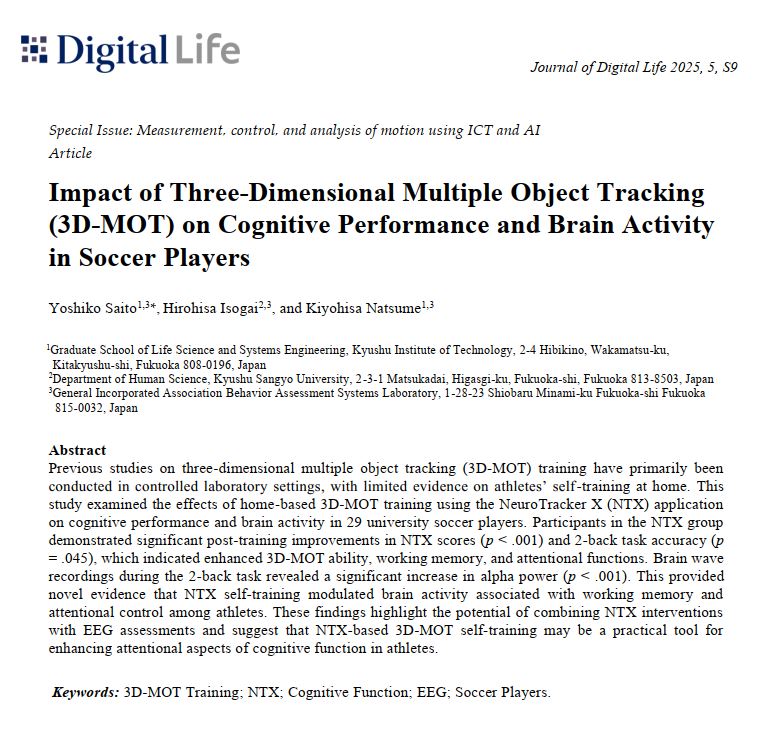Welcome to the Research and Strategy Services at in today's fast-paced.

NeuroTracker mastermind Professor Faubert recently appeared as a special guest on the Goalie Hacks Podcast, hosted by Mike Santaguida. In an action packed 90-minute episode titled The Secrets of Visual and Cognitive Perception, the renowned neuroscientist and the pro hockey goalie took a deep dive into the perceptual-cognitive dimension of the athletic brain. Professor Faubert shared unique behind-in-the-scenes insights on the wealth NeuroTracker research published over the past decade. In this blog we’ll cover the highlights discussed, as well share some key quotes from the show by the professor himself.
Mike introduced Professor Faubert as one of the leading neuroscientists and psychophysicists in the world. With NeuroTracker being adopted at the highest levels of sports in the NFL, NHL, EPL, and NBA, the question was asked how it all began. Professor Faubert explained the original goal of targeting perceptual-cognitive systems and understanding how they are applied in real-world human performance contexts. And most importantly, discovering if these systems are trainable.
‘‘A key question was, what’s the most basic element of attention to process a dynamic scene, let’s say, and how do we isolate it, measure it, and then train it?’’
His attempt to answer the question firstly led him to multiple object tracking, a task used in psychophysics to understand how competing demands on attention are distributed. Then to integrate the 3rd dimension, for interpretation of spatial depth awareness. Next to include a wide field size of image to challenge peripheral visual system. Lastly to combine a speed factor, to optimize difficulty and to provide a precise and objective measure.
Professor Faubert described how this combination was the simplest way to isolate the elements of attention that your brain needs to be efficient in getting the most out of information coming in. This defines the most fundamental representation of NeuroTracker. He likewise explained just how valuable speed thresholds are for getting someone in the zone of optimal focus, where the challenge is not too comfortable, nor too extreme. For this reason NeuroTracker's measures are valuable in lots of different fields of research into human performance.
Although NeuroTracker research wasn’t born out of sports, the technology’s inventor confessed,
‘‘I love sports, and I wanted to see how the science could transfer to make it useful, which is a big challenge for researchers generally. It started with a curiosity, which is like it always does in science. I wanted to see if we can throw something into the sports world and see if they can learn from us.’’
Back when NeuroTracker was still just a research experiment in the Faubert Lab, elite Canadian athletes and Olympians would come to test themselves on this form of virtual environment neurotechnology. From there it captured the interested of Manchester United F.C., who entered into a partnership with NeuroTracker in 2010, to evolve it in line with the needs of professional sports teams.
‘‘This kind of science rose out of questions about how we create real world benefits, and this led us to NeuroTracker which attracted athletes, and that’s how it began. It’s was more efficient that I could of dreamed of. Then the evidence kept coming out that we can train with this, with more and more research that it relates to real-world performance, and it just keeps building.’’

Professional athletes want to do what it takes to become the best, but from Professor Faubert’s neuroscience perspective there is a gap in realizing how pivotal the brain actually is. And like any new paradigm shift, an open mind and a fresh level of thinking is needed.
‘‘If someone said physical fitness wasn’t important for sports you’d be laughed at. But if you go back twenty years or so, it wasn’t considered at the same level. Not the way we see it now, there was a lot of resistance. Even players on the Canadian Hockey team would say ‘I don’t play hockey in running shoes’.’’
Just like everybody understands that you need to do more than just play the game to become exceptional, such as training physical fitness, you can also expect to see benefits from improving cognitive systems.
‘‘It’s the same with the brain, it just that people don’t consider that.’’
Sports like soccer and basketball first experienced a shift into strength and conditioning, then into sports science, followed by data analytics. Each of these met resistance and took time to be properly adopted. Now we are in the middle of a shift into the dimension of cognitive performance.
As a lifelong neuroscientist, Professor Faubert has a flexible mindset when it comes to how intelligence is defined, especially when it comes to sports.
‘‘We use our brain in many different ways, and to look at what some athletes do, the level they’re at, you have to admire that. So you have to say, what kind of system is able to do that? At that speed, at that efficiency, at that precision level, online…it’s an amazing system. It’s beautiful because it’s a very complex system that all gels at the same time. So the brain plays a very important role.’’
To unravel the complexity of sports in terms of the brain processes, he explained the interplay between indigenous (internal) and endogenous (external) attentional focus, and how sports environments create a storm of competing demands…‘‘a sort of a tug of war going on.’’
He also covered how athletic demands on attention are multifaceted. In particular he mentioned how emotional and psychological demands compete with conscious focal attention and event-based stimuli coming in all around us. The conclusion is that sports performance at a high level requires high levels of special kinds of intelligence.
‘‘There’s the dumb jock myth, the idea that you don’t need your brain and you just have to have talent or good skills. One of the big papers I published with NeuroTracker with professional athletes showed the opposite.’’
Featured on the homepage of Nature.com and attracting the interest of media worldwide, Professor Faubert published a 2013 study titled ‘Professional athletes have extraordinary skills for rapidly learning complex and neutral dynamic visual scenes’. It provided a unique window into the athletic brain, because for the first time it showed that an elite athlete’s grey matter is a central factor in their ability to succeed in sports.
‘‘I don’t know of any other study that has been able to test hundreds of professional athletes while actually having them engage in an aspect of performance. We did this with EPL, NHL, Top 14 Rugby professionals and NCCA athletes. Professionals improved much faster than elite amateurs, who in turn improved significantly faster than college students. I was looking at three completely different populations.’’

The results showed that world-class athletes are a different breed when it comes to to how incredibly adaptive their brains are. The study told Professor Faubert that there was something special about the athletic brain.
‘‘There was something key here, and NeuroTracker taps into that special characteristic of cognitive systems optimized to adapt to things like dynamic and complex scenes, even when they are neutral scenes. If they can improve at a level much faster, those are going to be your top. top, top athletes. I think when it comes to truly great athletes, it’s all about how quickly they can adapt their abilities.’’
His opinion on how to discover the next sports star is that cognitive adaptability is key when you’re profiling athletes, specifically their plasticity to learn and consolidate new abilities more efficiently.
Deeper into the podcast the discussion led into the psychophysics realm of perception, and how what we perceive is constrained by the limits of the visual information and knowledge we can physically process.
First Professor Faubert gave his position on the vision trainer debate, where clinicians and vision coaches tend to specialize in either an eye centric approach and or a brain centric approach. Not surprisingly he sides with the brain.
‘‘The brain, unlike the body, requires a constant energy flow. The eye is quite special because it supplies neurons directly with light and energy transfer. Of course you need good eyesight to perform at a high level, no doubt, but there’s only so much you can do with the eyes. The critical thing about vision is that a lot of it is about what you interpret. Most of your perception is constructed by mental processing based on just a sample of what you have of the world.’’
Here Professor Faubert touched on how the brain and body are a shared energy and information system. For example, when people are physically fatigued, it’s known that their cognitive abilities typically degrade, due to ‘‘running out of reserves from a brain function perspective’’.
Even with energy limitations, attentional focus is a very plastic system that’s dependent on many different neural networks. It’s both very dynamic and trainable. The fact that the brain is plastic is the biggest discovery in neuroscience. Research using NeuroTracker at the Faubert Lab revealed that at older ages there’s still plasticity, and that cognitive systems can be optimized even to the level of young adults.
Professor Faubert’s emphasis on neuroplasticity is that it can increase the efficiency of neural networks, potentially requiring less energy to perform the same tasks, ‘‘That’s whole thing about efficiency. When something becomes more automatic, it requires less energy’’.
This curiosity led to a study combining sports science and neuroscience.
‘‘One of my students was an ex-professional top 14 rugby player. He was very interested in the aspect of cognitive fatigue, and if there could be a benefit of training the brain. We used ‘NeuroTracker as the measure of attention, because you need to maintain focus, it’s always testing threshold levels, and it measures an objective outcome.’’
The outcome of the study showed that the athletes who were pretrained on NeuroTracker, could maintain peak levels of attention focus while heavily physically fatigued. In contrast, the attention levels of non-trained rugby players dropped quite dramatically with sustained physical exertion.
The results demonstrated to the sports world that the mind can be trained to resist the effects of acute or chronic physical fatigue, to maintain cognitive abilities and sustain mental focus at peak level under pressure.
We hope you gained some new perspectives on sports performance from this blog. You can delve deeper and listen to the whole Goalie Hacks Podcast special for free here. Also check out the many other great episodes the show has put out this year, including high profile guests such as sports psychology guru Len Zaichkowsky.
https://goaliehacks.com/podcast/









Welcome to the Research and Strategy Services at in today's fast-paced.

A new controlled study shows that remote NeuroTrackerX training improved attentional performance and frontal alpha brain activity in university soccer players.

An explanation of a structured habit-building framework for cognitive routines, emphasizing consistency, accountability, and long-term sustainability.

From stereo-3D to adaptive speed thresholds, get the lowdown on what makes NeuroTracker tick.
.png)